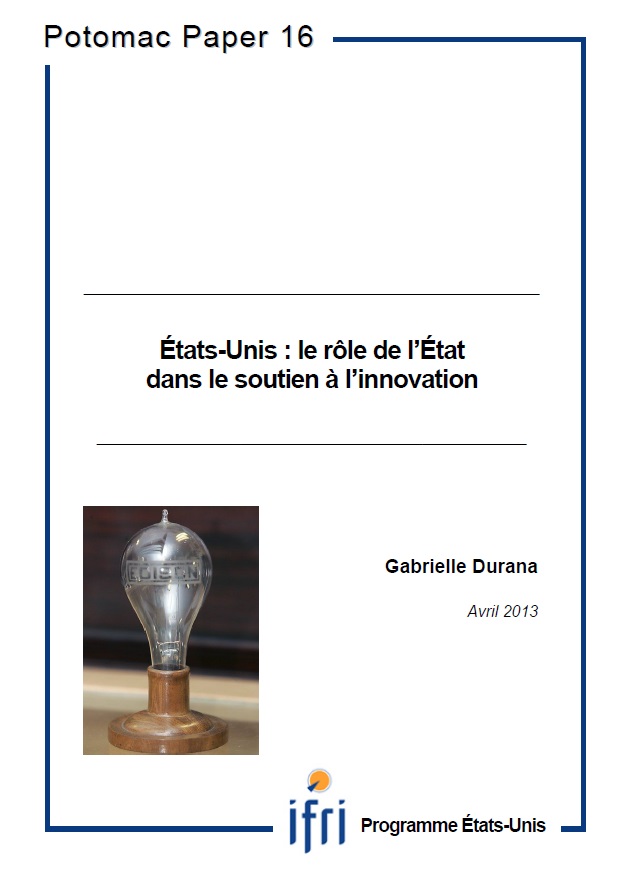États-Unis : Le rôle de l'État dans le soutien à l'innovation

Even though the private sector brings more funding to innovation programs, the role government plays by hosting and/or funding research projects remains key. Only the public sector can pursue the long term projects with no foreseeable profitability that will enable the next industrial revolution.
The role government should play in spurring innovation by hosting and/or funding research projects has been debated since the beginnings of the American Republic.
After the 1940, and because the country was now vested with international responsibilities, systematic public funding of innovation efforts began in earnest, launching military research projects (such as the Manhattan Project) as well as civilian research projects (such as the Apollo Program). Newly set up networks of public laboratories began interacting with private industrial labs and university labs, thus multiplying technical paths for innovation.
Since a distinctly free-market-oriented ideology has begun to hold sway in the 1970s, private funding of innovation programs has become more important ($225 billion in 2009). Public funding remains substantial for military programs ($79 billion in the 2013 budget project), while public funding of civilian research (62 billion) must remain more discreet, in order not to be slashed by Congress. Typical research collaborations now engage private sector and university laboratories.
Yet the role of government in the support of research efforts remains strategic: venture capitalists will not fund the very long term research projects with no foreseeable profitability required to set up the next industrial revolution and a potential switch to renewable energies.
The United States remains the best funder and actor of innovation, and attracts brilliant minds from all over the World. Still, only a better education system will ensure that this remains true over the long-term.
This content is available in French : "États-Unis : Le rôle de l'État dans le soutien à l'innovation"




